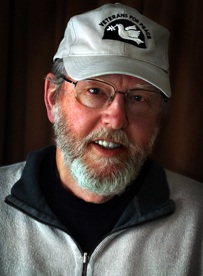During that episode I'll never forget the woman I met in her fifties who worked for the needle exchange group. She had been, and I suspected may still have been, a heroin addict. She said addicts get to the point there is no pleasure in the drug. Your physiology has been changed, and the heroin becomes like insulin to a diabetic: Something you just need to maintain life. She may have been one of the dirty little secrets the media does not talk about, a maintaining heroin addict. Someone with a hard-earned maturity who has figured out how to take the heroin he or she needs and how to do it while maintaining a responsible, working life.
No mainstream media enterprise can profile such a person for two reasons: One, it goes against the culturally mandated image of heroin addicts as filthy pariahs, and two, what heroin user in his or her right mind would agree to be so profiled in the police-saturated climate we live in. The only alternative we have is for fictional scripts and great actors to portray such a person. As perverse as it may seem, we have to believe Hoffman would have been powerful portraying himself in his last days.
Like all the classic tragic roles of the acting trade, he made his own decisions in his life. Did he have accomplices in his downfall? As in all theatrical tragedies, life is pregnant with human interaction. But if those who sold him the drug that killed him were, like most drug dealers, following the rules of free-private-enterprise, they certainly did not wish to kill him. People in business don't kill those who buy their product. In fact, they tend to do the opposite. Like the Addvie Pharmaceutical Group, they tend to encourage the buyers of their product to stay healthy so they can buy more. The worse you can say about dealers is, like pharmaceutical corporations, they're enablers, not educators looking out for the best interests of their consumers.
To emphasize Dr. Hart's point about education, Hoffman may simply have been ignorant about the physiological realities of what he was doing to his body and how he was risking the life of his children's father. I cannot but believe he would want his death to be a catalyst for greater understanding. It's clear from his work that's the kind of man he was.
(Note: You can view every article as one long page if you sign up as an Advocate Member, or higher).




